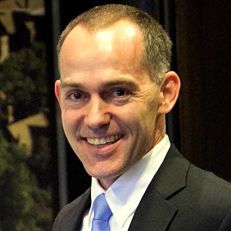BLOOMINGTON, Ind. - Faith-based organizations play an important role in the nonprofit sector, but the full scope and scale of their impact has historically been obscured.
But Brad Fulton, an associate professor at the Paul H. O’Neill School of Public and Environmental Affairs, and colleagues from Brandeis University and the University of Texas at Austin, have shed light on this area in a study published in Nonprofit & Voluntary Sector Quarterly. The article, “Activity and Identity: Uncovering Multiple Institutional Logics in the Nonprofit Sector,” details a method for measuring organizational identity and focuses on religious identity to illustrate the process.
“Our approach enables us to provide the first-ever estimate for the total number of faith-based organizations in the nonprofit sector as a whole,” Fulton said. “Based on our analyses and calculations using nonprofit sector data, we estimate that there are approximately 177,000 religiously-identified organizations operating in the non-religious domains of the nonprofit sector.”
That estimate doesn’t include the roughly 384,000 religious congregations in the United States or the 109,000 religious nonprofit organizations that are not congregations but whose primary activity is to promote religion. Fulton and his colleagues estimate that there are approximately 670,000 faith-based organizations operating in the U.S.
The researchers obtained data from Internal Revenue Service Form 990, which gathers information about tax-exempt organizations that can be shared with the public, and analyzed it using natural language processing and machine learning tools.
“Using a multi-step process, we created a dictionary of about 1,000 religious terms that span several faith traditions; it’s exhaustive,” Fulton said. “To detect religious identity, we analyzed every nonprofit organization in the IRS data to determine whether its name or mission statement contained at least one religious term. We then conducted substantial due diligence to identify false positives. The results provide estimates of the scope, scale, and distribution of faith-based charities throughout the nonprofit sector.”
An extension of this project, for which Fulton received funding from Philanthropy for Active Civic Engagement, provides valuable information about nonprofits and their missions that will allow donors to make more informed grantmaking decisions and will expand the scope of charitable giving options available to faith-motivated donors who prefer giving to faith-based charities. The information contributes to Fulton’s Faith in Philanthropy project and can help foundations determine what percentage of their grants are distributed to faith-inspired organizations.
“With the subsequent Foundation-Grantee Network project I’m launching, you can take a secular foundation and analyze its portfolio of grantees and their corresponding networks,” Fulton said. “The secular foundation might say, ‘We really don’t fund faith-inspired organizations,’ but we could show them that some of their grantees are faith-inspired and help them see that they’re actually more faith-friendly than they realized.”
The method we developed for this study provides a critical step in understanding the scope and scale of faith-based nonprofits. The method can also be extended to create additional dictionaries and large-scale measures of other organizational identities, including race and ethnicity, gender, sexual orientation, and politics.
“The goal is to enable organizations to hold a mirror up to better understand themselves,” Fulton said. “We want to help them to use this information to increase their self-awareness and make informed decisions.”
“These students are powerful representatives of O’Neill’s commitment to lead for the greater good,” said R.J. Woodring, O’Neill’s associate dean for educational programs. “We’re incredibly proud of all they’ve accomplished so far and look forward to seeing where their commitment to public service takes them in the future.”


